Description
Fastest Electric Scooter
Pure Electric Scooter
Electric Scooter For Heavy Adults
| Parameter | |
| Frame | High strength aluminum alloy 6061, surface paint |
| Forking forks | One forming front fork and rear fork |
| Electric machinery | 14 “84V 20000W brushless toothed high speed motor |
| Controller | 72V 150SAH*2 tube vector sinusoidal brushless controller (mini type) |
| Battery | 84V 90AH-150AH module lithium battery (Tian energy 21700) |
| Meter | LCD speed, temperature, power display and fault display |
| GPS | Location and two control alarm |
| Braking system | one disc, does not contain harmful substance, in compliance with international environmental requirements |
| Brake handle | Forging brake of aluminum alloy with power breaking function |
| Tyre | ZhengXin tire 14inch |
| Headlight | LED lenticular bright headlights and driving lights |
| Maximum speed | 125km |
| Extension mileage | 155-160km |
| Motor | 10000watt per piece |
| Wheel | 14inch |
| Net weight and gross weight | 64kg/75kg |
| Product size | L* w* h: 1300*560*1030 (mm) |
| Packaging size | L* w* h: 1330*320*780 (mm) |
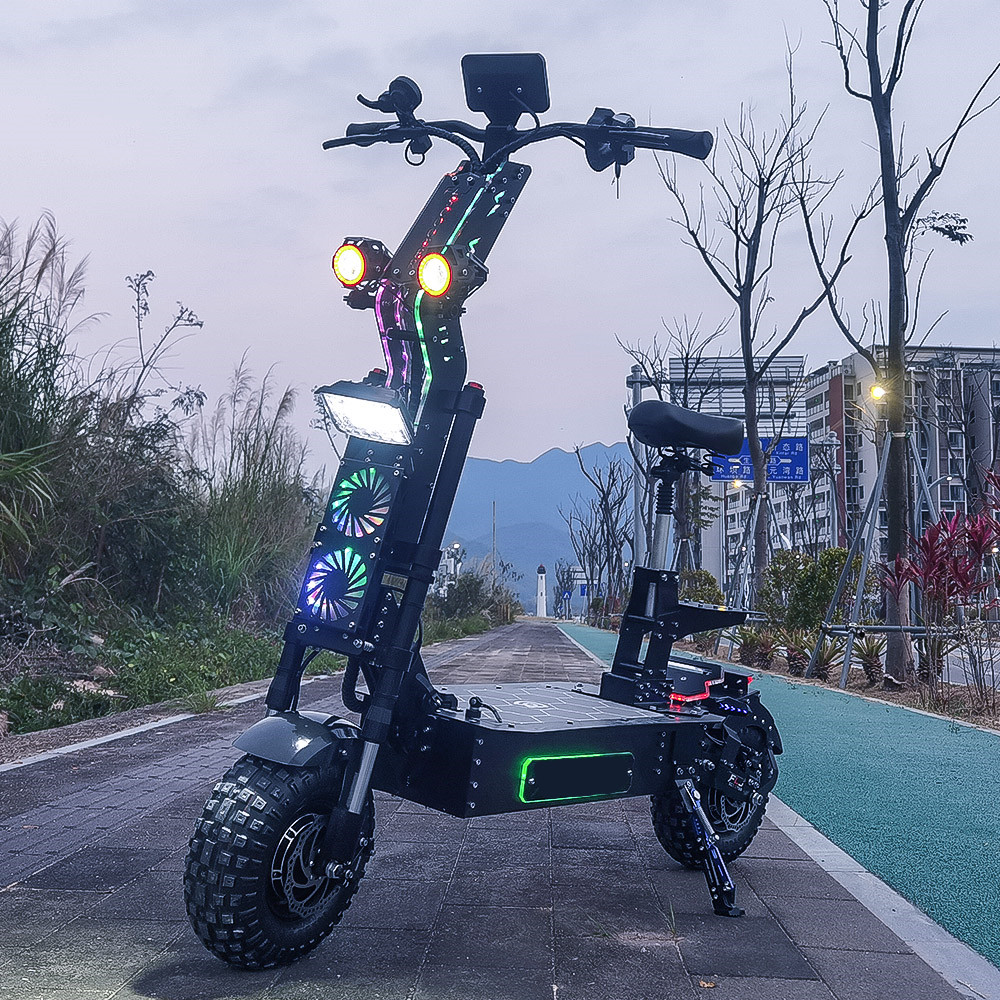

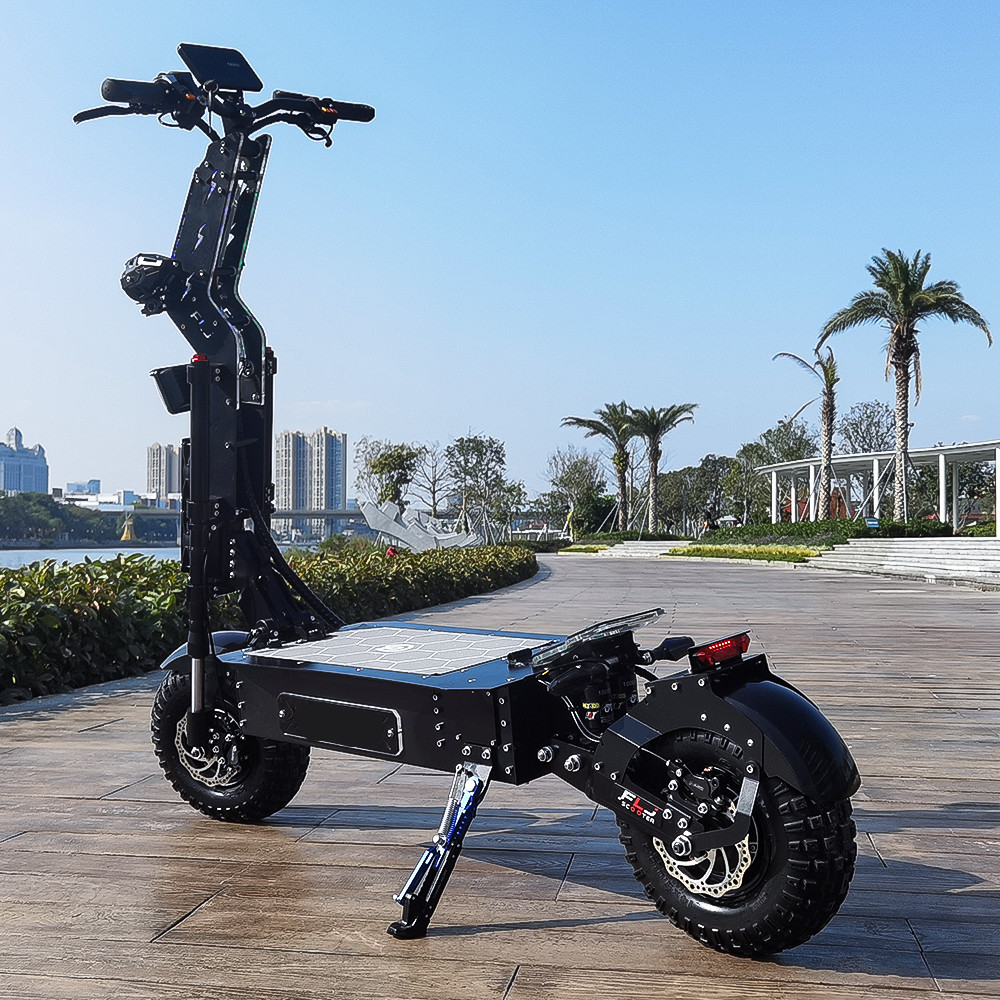
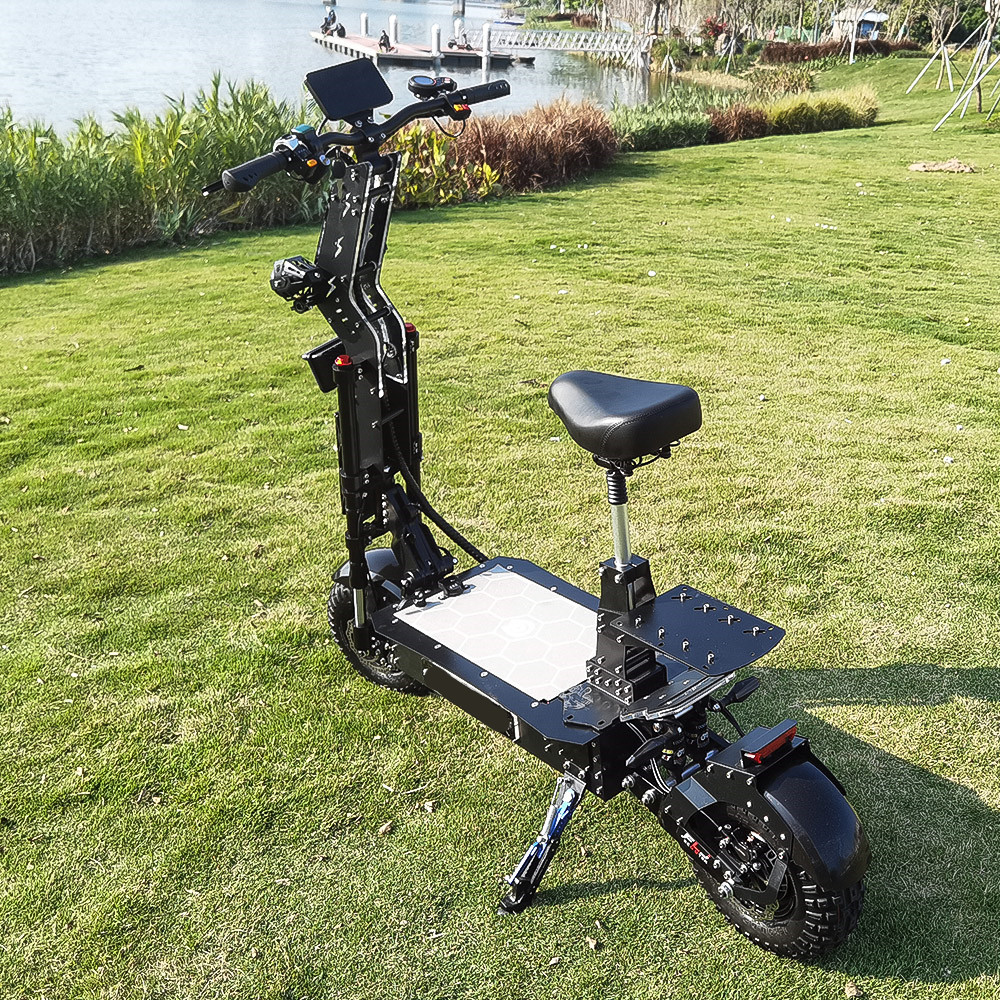
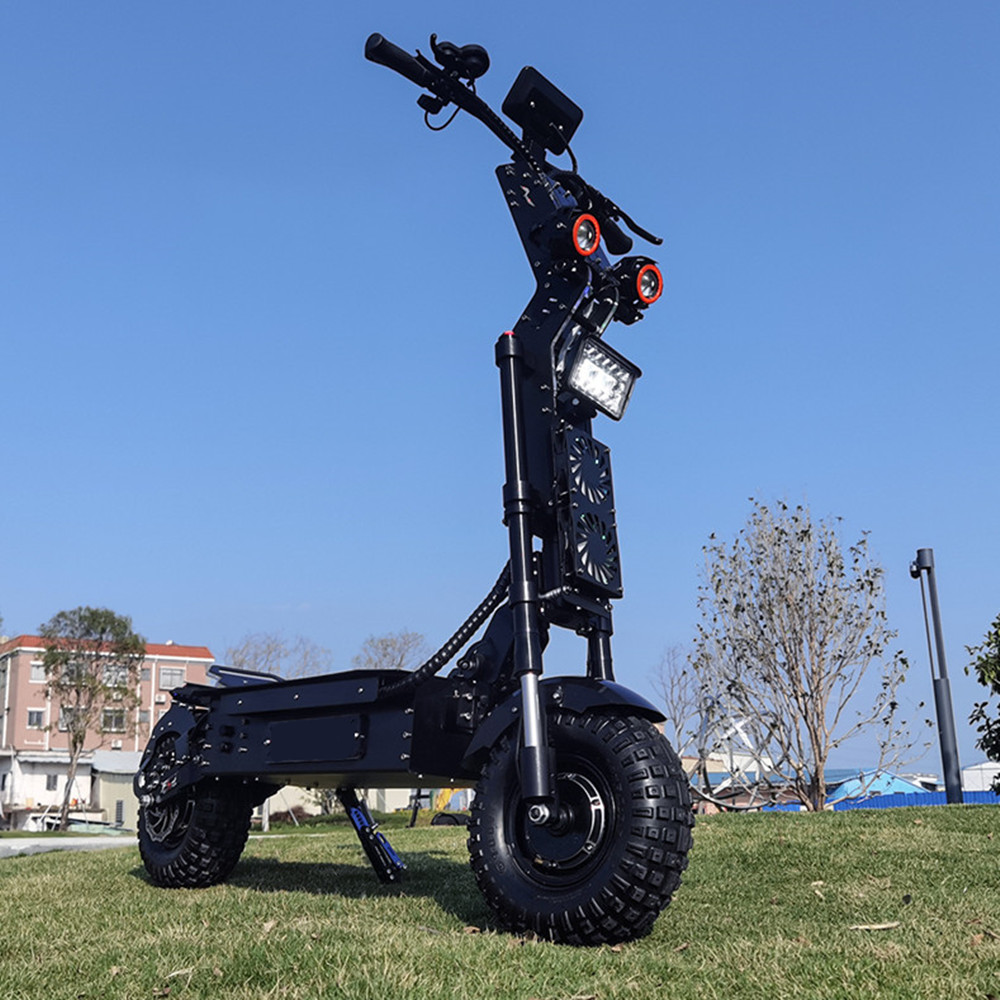
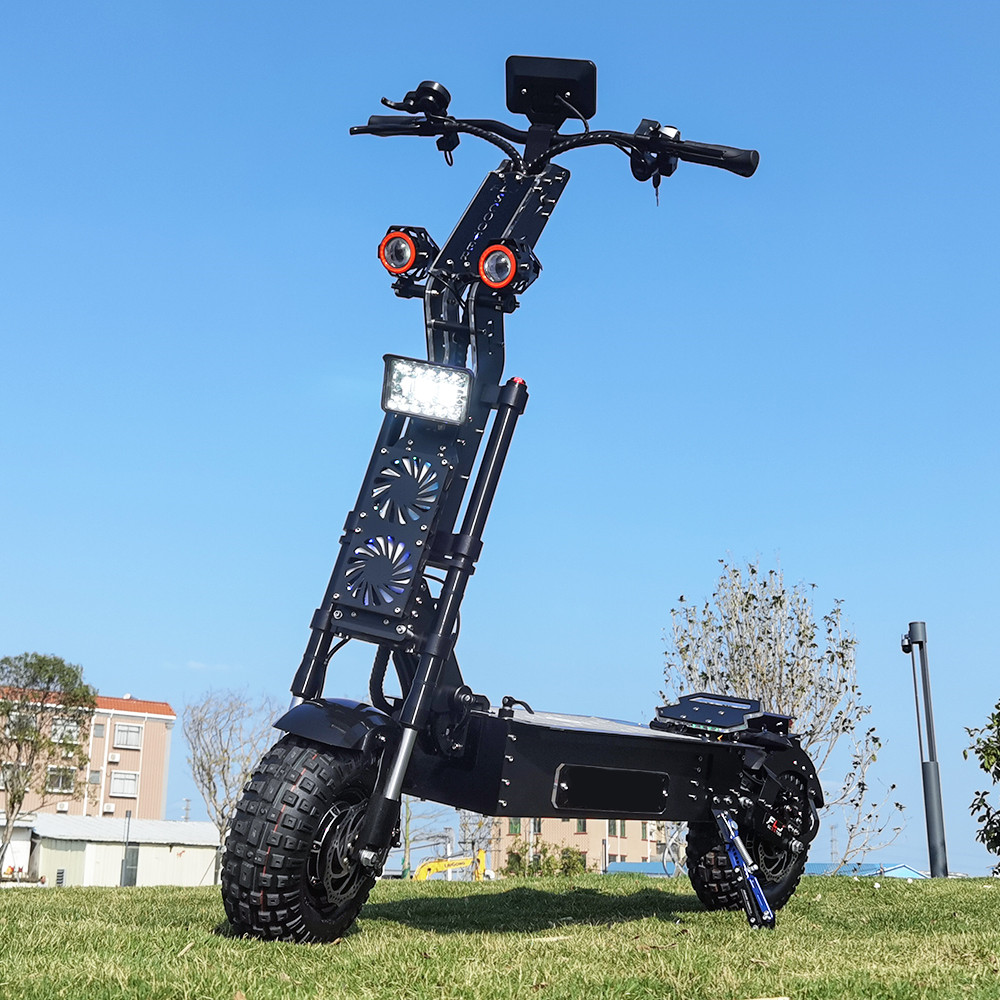
The development history of electric vehicles
Electric vehicles, also known as battery vehicles, are a means of transportation that use electrical energy as a power source. Its emergence and development are a combination of technological progress and environmental protection concepts, as well as human exploration and pursuit of green travel. The development history of electric vehicles can be traced back to the mid-19th century, but it really came into public view after the oil crisis in the 1970s.
As early as 1832, Scottish inventor Robert Anderson had built the first electric carriage. The car uses a battery made of iron and copper to move the wheels forward by changing the direction of the current. However, due to the limitations of battery technology at the time, the carriage’s endurance was very limited.Both the United States and Germany have played an important role in the development of electric vehicles. The American company Tesla is the leader in the global electric vehicle market, and its founder Elon Musk is known as the “Father of Electric Vehicles.” Tesla Model S is Tesla’s flagship model. It has become one of the best-selling electric vehicles in the world with its excellent range and luxurious configuration.Germany is the birthplace of electric vehicle technology. As early as 1881, German engineer Franz von Wolf invented the world’s first electric car. The car uses a rechargeable lead-acid battery that can be charged by plugging into an electrical outlet.The development of electric vehicles has not been smooth sailing. In the early days, the use of electric vehicles was not widespread due to limitations in battery technology and charging facilities. However, with the advancement of technology, the performance and endurance of electric vehicles have been significantly improved. In addition, governments of various countries are also promoting the development of electric vehicles and encouraging the public to purchase and use electric vehicles by providing car purchase subsidies and building charging facilities.In China, the development of electric vehicles is also very rapid. China’s BYD is the world’s largest electric vehicle manufacturer, and its product lines cover passenger cars, buses, trucks and other fields. BYD’s electric vehicles have won recognition from consumers for their high cost performance and excellent endurance.The development of electric vehicles can not only reduce oil consumption and air pollution, but also promote the development of industries such as new energy and new materials, which is of great significance to achieving sustainable development. However, the development of electric vehicles also faces some challenges, such as battery safety issues and insufficient charging facilities, which require our joint efforts to solve.In general, the development of electric vehicles is a combination of technological progress and environmental protection concepts, and is humankind’s exploration and pursuit of green travel. Although the development of electric vehicles still faces some challenges, we have reason to believe that with the advancement of technology and the improvement of people’s environmental awareness, electric vehicles will play an increasingly important role in future transportation.The future of electric vehiclesThe future of electric vehicles is filled with endless possibilities. With the advancement of battery technology, the endurance of electric vehicles will be further improved. In addition, the construction of charging facilities will also be accelerated, making the use of electric vehicles more convenient.The development of electric vehicles will also promote innovation and change in the automotive industry. In the future, cars will not only be a means of transportation, but also become mobile intelligent terminals, bringing more convenience to people’s lives. At the same time, the popularity of electric vehicles will also have a profound impact on the energy structure, helping to reduce carbon emissions and protect the environment.However, the development of electric vehicles also faces some challenges. First, battery safety is still an issue that needs to be addressed. In addition, battery recycling and disposal is also a big issue. In order to solve these problems, we need to increase investment in basic research on new energy and new materials and promote scientific and technological innovation.
Overall, the future of electric vehicles is promising. We have reason to believe that with the advancement of technology and people’s pursuit of green travel, electric vehicles will play an increasingly important role in future transportation.




